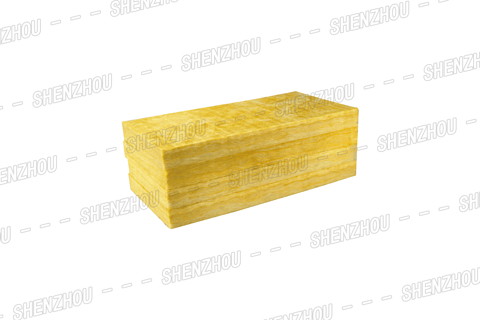
What is the insulation performance of glass wool
5/30/20245 min read

The insulation performance of glass wool has always been of great concern, and as a high-quality insulation material, it has been widely used in multiple fields. So, what is the insulation performance of glass wool? This article will analyze in detail the structural characteristics, thermal conductivity, thermal resistance value, and other aspects of glass wool, and explore its insulation effect in practical applications.
Categories
Popular
Applications of Glass Wool Board:
Interior Wall Compartments:
Enhances the functionality and aesthetics of interior spaces.
Ceiling Systems:
Provides effective insulation for ceilings, contributing to energy efficiency.
Insulation of Iron Sheet Air Ducts or Bellows:
Ideal for insulating ductwork, ensuring thermal efficiency.
Sound Absorption and Noise Reduction:
Reduces noise levels in machine rooms, creating a quieter working environment.
Exterior Wall Insulation:
Offers insulation for residential building exteriors, contributing to energy savings.
Glass Wool Insulation





Firstly, let's understand the basic structure of glass wool. Glass wool is made of glass fibers, which have a three-dimensional network structure with numerous pores and small gaps. This structure gives glass wool a unique advantage in insulation. Due to the presence of pores and gaps, air forms a good insulation layer inside the material, effectively reducing heat transfer. At the same time, the fiber structure of glass wool also increases its compressive resistance, allowing the insulation layer to maintain a stable thickness and performance.
Next, let's take a look at the thermal conductivity of glass wool. Thermal conductivity is an important indicator for measuring the thermal conductivity of materials, which reflects the ability of materials to transfer heat per unit time and per unit temperature difference. The thermal conductivity of glass wool is relatively low, which means it has good insulation performance. In practical applications, glass wool can effectively prevent the transfer of heat, keeping the temperature inside buildings or equipment stable, thereby reducing energy consumption.
In addition, the thermal resistance value of glass wool is also an important manifestation of its insulation performance. The thermal resistance value is a physical quantity that reflects the ability of a material to prevent heat transfer, and is related to factors such as the thermal conductivity, thickness, and density of the material. The density of glass wool is moderate, which not only ensures its good insulation performance, but also avoids the cost increase and processing difficulties caused by excessive density. At the same time, the thickness of glass wool can be adjusted according to actual needs to meet the insulation requirements of different occasions.
In practical applications, the insulation performance of glass wool has been widely verified. In the field of architecture, glass wool is widely used for thermal insulation of exterior walls, roofs, and floors. By laying glass wool insulation layers on the exterior walls and roofs, it is possible to effectively reduce heat loss and improve the insulation performance of buildings. At the same time, glass wool also has certain sound insulation performance, which helps to improve the acoustic environment of buildings. In the industrial field, glass wool is also widely used for insulation of pipelines, equipment, and warehouses. By wrapping the glass wool insulation layer, it is possible to effectively reduce heat loss and improve the operational efficiency of the equipment.
In addition to excellent insulation performance, glass wool also has some other advantages. Firstly, it has good fire resistance, is not easily combustible, and can prevent the spread of fire. This makes glass wool highly reliable in terms of fire safety. Secondly, the environmental performance of glass wool is also very outstanding. It is non-toxic and harmless, and will not cause harm to human health and the environment. During the production process, the waste of glass wool can also be recycled, reducing environmental pollution.
However, although glass wool has excellent insulation performance, there are also some issues that need to be noted during use. Firstly, due to the fine fibers of glass wool, it is easy to float in the air. Therefore, protective measures need to be taken during use to avoid irritation and damage to the human body. Secondly, the insulation performance of glass wool is greatly affected by humidity, so it is necessary to pay attention to the decrease of its insulation performance when using in humid environments.
In summary, glass wool, as a high-quality insulation material, has significant advantages in insulation performance. Its unique structural characteristics, low thermal conductivity, and good thermal resistance make it widely used in the fields of construction and industry. At the same time, glass wool also has good fire resistance and environmental performance, making it highly competitive in insulation materials. During use, attention should be paid to taking protective measures and avoiding use in humid environments to ensure good insulation effect and service life.

Why Choose SHENZHOU Glass Wool Board?
SHENZHOU® Glass Wool Board not only meets the essential requirements of thermal insulation but also excels in sound absorption and noise reduction. Its adaptability to various settings, coupled with the convenience of construction and installation, positions it as a leading choice for architects, builders, and contractors.
In conclusion, the broad application prospects of SHENZHOU® Glass Wool Board make it a comprehensive solution for enhancing comfort, energy efficiency, and acoustic performance across diverse projects. Choose SHENZHOU® for insulation solutions that go beyond expectations.










About Us
Click the button below to get more information about us
Newsletter
Click to subscribe for more information
Follow Us
Contact Us
Address
Dacheng town, Langfang City, Hebei province, China
Phone
+86 185 03165 626


